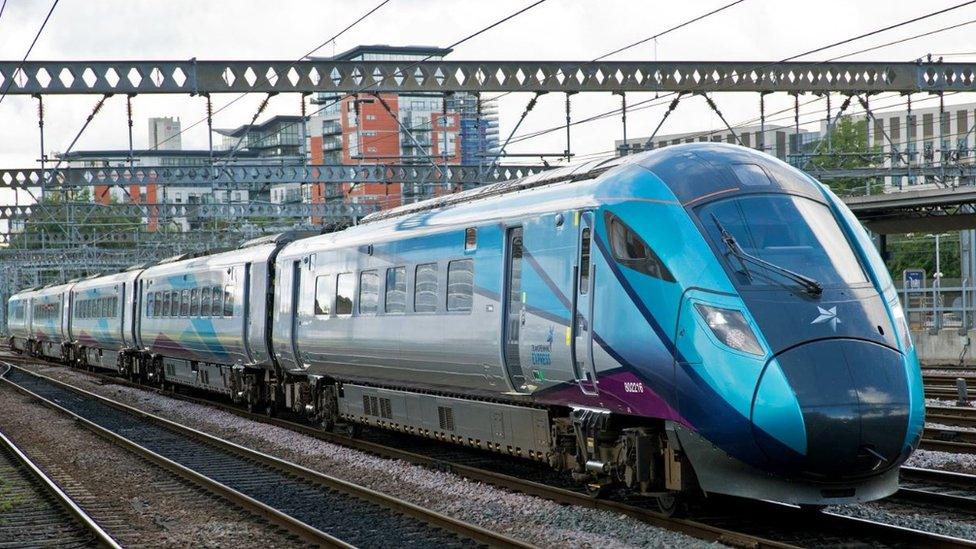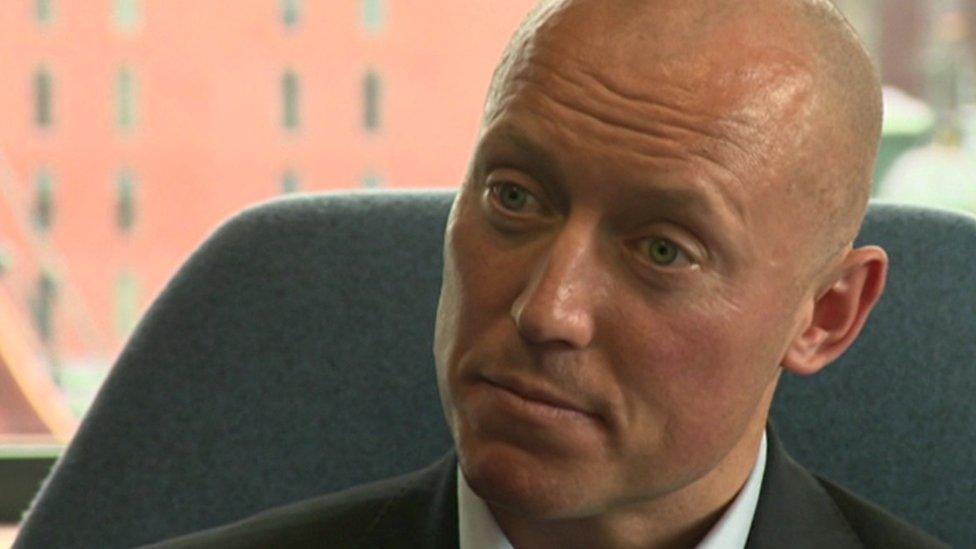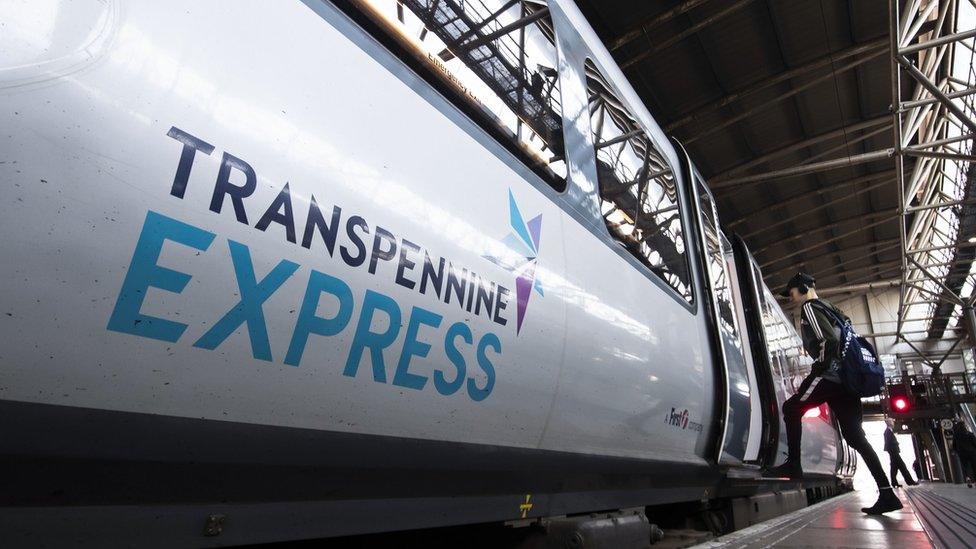TransPennine Express announces service cuts to boost punctuality
- Published

Services have suffered from widespread delays and cancellations over the past year.
Train operator TransPennine Express has announced it will cut services to improve punctuality and reliability.
The government-controlled firm said services between Leeds and Manchester would be reduced from four to three per hour during off-peak times.
It will mean the company runs 300 services a day instead of 320.
Managing director Chris Jackson said the temporary change would clear the backlog of driver training and put the firm on a more "stable" footing.
He told BBC Look North: "This plan to slightly step back the timetable in December will help to fix the business in the long term and operate a much more stable and reliable timetable for customers.
"If we are able to, we will reintroduce services through 2024 or if not, we will reintroduce the full timetable in December 2024."

TransPennine Express managing director Chris Jackson
Under the firm's Making Journeys Better blueprint, TransPennine will also remove Nova 3 locomotives from timetables after December.
The firm said their fleet had been "underutilised" due to operational and noise restrictions.
Mr Jackson said even with the removal, TransPennine, would have "sufficient" capacity to meet demand.
While he said most routes would not be affected by the timetable shake-up, he said Hull passengers would see "marginal" increases to off-peak journey times to Manchester.

Analysis: Spencer Stokes, Business and Transport Correspondent, BBC Yorkshire
It's nearly five months since the new government-owned TransPennine Express took over from private company First Group who had been running TPE.
Over the summer there's been a full appraisal of what went wrong and why so many services were delayed and cancelled.
One of the key factors was a dispute with the train drivers' union ASLEF with drivers refusing to do overtime shifts. This has now been solved with a new agreement.
As a result more drivers are available and cancellations have fallen to around 5%.
But passengers are now facing a reduction in the number of off-peak Leeds-Manchester trains from four to three each hour.
This is some way from the six trains an hour that were being promised pre-Covid.
Coming hot on the heels of the cancellation of HS2 to Manchester it could be seen as a further downgrading of the North's rail services.
However TPE says they've consulted with regional mayors who have agreed to the change. They also say it's a short-term measure.
Three of the North's main rail operators (TransPennine Express, Northern and LNER) are now run by the government but the Transport Secretary Mark Harper said in May that it is his intention was to return TPE to the private sector.

The troubled train operator came under government control in May after years of complaints about service levels.
Figures showed the equivalent of one-in-seven services being cancelled in the first four weeks of April, more than any other operator.
According to the government operator which now runs the routes, in early 2023 it operated 276 services on a daily basis with around 50 to 60 train cancellations each day.
The company also came under fire in February for its high use of p-coding, which is used to cancel trains the night before in response to poor weather or damage to rail infrastructure.
Because the announcements are not made on the day, these cancellations are not included in official performance statistics.
Mr Jackson said the firm had reduced its use of the process "significantly" since May but said it would continue to employ it "as a last resort".

Follow BBC Yorkshire on Facebook, external, X (formerly Twitter), external and Instagram, external. Send your story ideas to yorkslincs.news@bbc.co.uk, external.
Related topics
- Published11 May 2023

- Published23 June 2023

- Published15 June 2023

- Published28 May 2023
